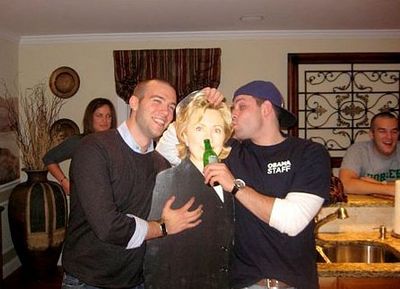Fairy tales are one of the oldest ways mankind has used entertainment to teach the value of good behavior and consequences of bad. Most tales at heart tell of a central character who does either good or bad and either triumphs in the end or suffers gruesome retribution (especially in the original, non-sanitized versions of the tales — not for nothing were the most famous compilers known as the Brothers Grimm.) Pure hearts received happily ever after and malefactors suffered blindings, beheadings and bloody reprisals. What a great set-up for a musical comedy!
In Into The Woods, Stephen Sondheim mixes together several familiar tales, adds in his trade-mark clever wordplay and weaves it all together into a fast-paced, two-act, Tony-award-winning musical with a light touch that covers some fundamental values and moral dilemmas. The long-running Broadway show was filmed for television in 1991, featuring the spectacular Bernadette Peters in the pivotal role of The Witch. (The DVD of this production is available from Netflix).
In addition to The Witch, the central characters are Cinderella, Jack from “Jack in the Beanstalk”, a baker and his wife, and a couple of handsome-prince brothers. All have something they greatly desire, expressed in the all-purpose and all-powerful motto of the show: “I wish.” There is also a “Mysterious Man” who’s motives in the first act are not clear, though it turns out he is the one who’s first transgression sets all the other plot wheels into motion.
The movie version is a delightful, hilarious romp for the whole family though it is a bit ribald in places with a lot of cleavage and an anatomically-correct Wolf (Hello, Little Girl), as well as some adult themes that are deftly and creatively handled. The message is that wishes lead to actions and actions have consequences, some of which may not be immediately realized. The first act of the show weaves each character’s story together as they interact with each other in their pursuit of their respective wishes, wrapping up in a “happy ever after” — or so you might think. Act 2 then goes into just how happy “happy ever after” can be if you haven’t really resolved who you are and what is truly important to you and in life. The cleverness and humor continues throughout the second act, but profound revelations and morals are in store. Here’s a summary of the character of the main characters:
Cinderella: gentle and kind, she spends a great deal of her hard life wishing for better things but especially to be able to go to the king’s festival. Her inability to decide what it is she really wants, however, leads to a number of complications.
Jack: a simple-minded boy with no father on the scene and a nagging but protective other, he discovers a fabulous new world with giants but his almost-innocent greed and suddenly discovered desire for adventure means complications are most definitely in store!
The Baker and his Wife: These are the characters on whom the story truly turns. A childless couple due to a curse the Witch put on the Baker’s household as a result of his father stealing beans from the Witch’s garden both ties the other stories together and carries the most complete moral dilemmas. The Baker also grew up without a father, and while his instincts are good and decent, he is easily swayed by his practical, ends-justifies-the-means (or beans) wife who’s situational ethics and strong personality add momentum to the causes and effects initiated by others. Ultimately, she is undone by another who’s situational ethics outmaneuver hers. The Baker, however, ultimately overcomes his timidity and realizes his weakness, ultimately leading to him becoming a better man.
The Witch: Somewhere I once heard someone use the line, “I’m not evil, I’m just efficient.” While that isn’t in this show, it describes the Witch. Ruthless, practical and powerful she has her weaknesses and is the character you can’t stop watching.
Little Red Riding Hood: a young girl, not as simple-minded as Jack, but immature and easily controlled by her own desires and indulgent impulses, she learns a hard lesson when she encounters the older, wiser Wolf but after her rescue has one of the most poignant songs in singing “I Know Things Now.” The last line of that song is that “Nice is different from Good.” Keep that in mind as this review continues.
Cinderella’s Prince and Rapunzel’s Prince. Two royal brothers and the apparent romantic ideal of any story, they are in fact driven by their competition with each other and their love of the quest and of obtaining that which appears out of reach. Once obtained, they lose interest, leading to heartbreak and devastation, though not necessarily for themselves. As one says when confronted with his faults, “I’m sorry, I was raised to be charming, not sincere.”
My favorite scene in the movie is in act two when the Baker, overcome by tragedy and fear, leaves his baby son with Cinderella and runs away, intending to abandon his son just as his father had abandoned him. In the woods, however, he encounters the ghost of his father (the Mysterious Man from act one) and gains an important perspective that helps move him past his own selfishness (click on the video below).
I like everything about that scene and the way it is handled, but I’m especially drawn to the father’s rationalization, as he confesses to the original theft of the beans that set everything into motion, “How was I to know? How are we ever to know?” Exactly — that’s the excuse just about everyone in the show and in real life uses at some point, but as I pointed out to the Fundamentals in Film class when we watched this, is that really true? Don’t we really know that certain behaviors are not going to turn out well, yet we blind ourselves to them anyway?
Another key lesson comes from the Witch in act two when the cast is confronted with a huge (literally) consequence for their actions and they try to establish the blame for what has befallen them, learning that they’ve each played a part in bringing this turn of events to pass. One way out is a ruthless and cold-blooded “for the greater good” decision, and of course the Witch is ready to act, to the horror of the others. Her response in the song “The Last Midnight” is apt, both for the situation and the lesson of the story:
You’re so nice.
You’re not good,
You’re not bad,
You’re just nice.
I’m not good,
I’m not nice,
I’m just right.
I’m the Witch.
You’re the world.
Ultimately, most debts are paid and lessons are learned and the surviving characters start a new life, not necessarily happier, but definitely smarter ever after.













